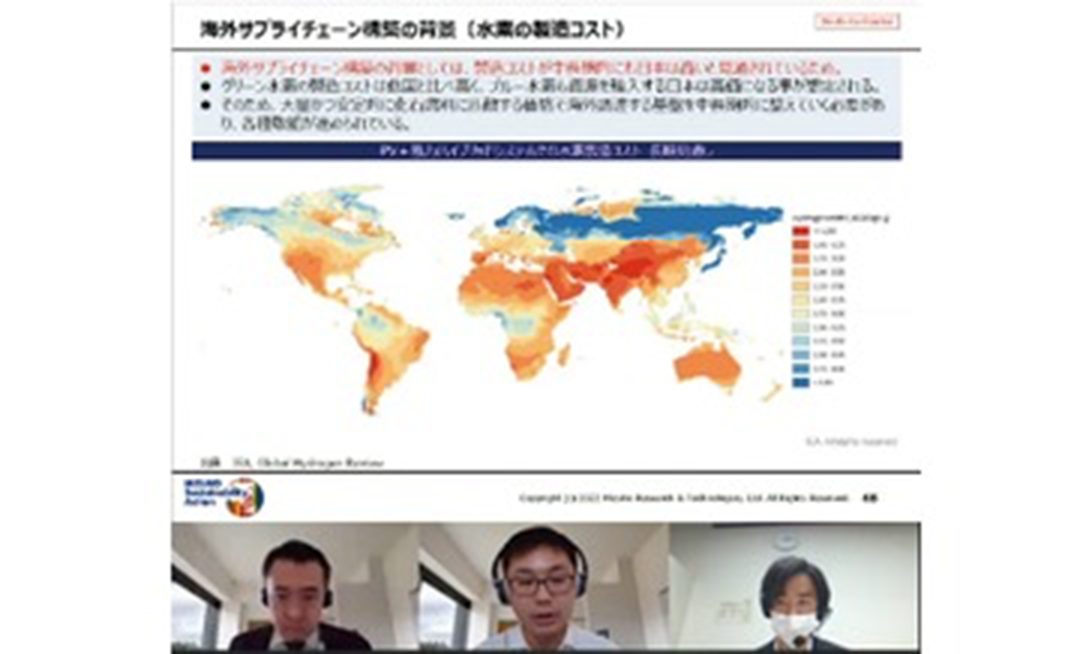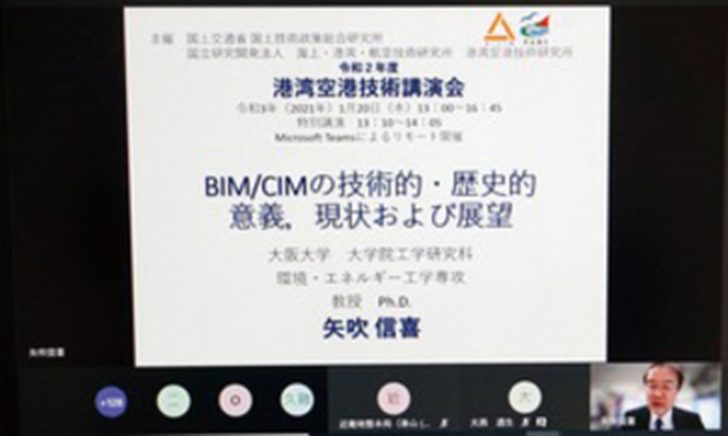PARI Events Implementation of lectures for the General Public
FY 2021
Port and Airport Technology Lecture
In cooperation with the National Institute for Land and Infrastructure Management (NILIM), a web-based lecture on port and airport technology was held on January 31, 2022 for the purpose of publicizing and disseminating the results of surveys, research and technological development conducted by PARI. The lecture event in FY 2021, which entitled “Achievement of Crabon Neutrality and a Carbon-Free Society by 2050,” included special lectures given by speakers invited from private enterprises as well as presentations delivered by various PARI and NILIM researchers on their research results, and was attended by 250 individuals.
 Web-based lecture
Web-based lecture Port and Airport Technology Special Regional Lecture
In cooperation with the National Institute for Land and Infrastructure Management (NILIM), Regional Development Bureaus and other organizations, the web-based seminars were held in four regions across Japan, each of which had more than 100 attendees and for approximately 440 attendees in total, for the purpose of provoding wide-ranging information on Institutes' research activities and results, and gathering information on research needs in each region.
FY 2020
Port and Airport Technology Lecture
In cooperation with the National Institute for Land and Infrastructure Management (NILIM), a lecture on port and airport technology was held remotely on January 20, 2021, with an audience of 157 lines, for the purpose of publicizing and disseminating the results of surveys, research and technological development conducted by the institute.
 Special lecture by Dr. Yabuki from Osaka University
Special lecture by Dr. Yabuki from Osaka University Port and Airport Technology Special Lecture in Region
In cooperation with the National Institute for Land and Infrastructure Management (NILIM) and Regional Development Bureaus and other institutes, the seminars were held in small number of venues or remotely in five regions across Japan, with a total of about 400 participants, for the purpose of the seminars was to provide a wide range of information on the research activities and results of the institute and to gather information on research needs in each region.



